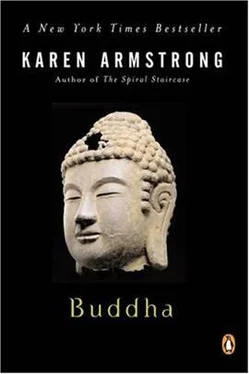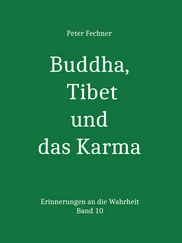The Sangha is the heart of Buddhism, because its lifestyle embodies externally the inner state of Nibbana. Monks and nuns must “Go Forth,” not only from the household life but even from their own selves. A bhikkhu and bhikkhuni, almsman and almswoman, have renounced the “craving” that goes with getting and spending, depend entirely on what they are given and learn to be happy with the bare minimum. The lifestyle of the Sangha enables its members to meditate, and thus to dispel the fires of ignorance, greed and hatred that bind us to the wheel of suffering. The ideal of compassion and communal love teaches them to lay aside their own egotism and live for others. By making these attitudes habitual, nuns and monks can acquire that unshakable inner peace which is Nibbana, the goal of the holy life. The Sangha is one of the oldest surviving voluntary institutions on earth; only the Jain order can boast a similar antiquity. Its endurance tells us something important about humanity and human life. The great empires, manned by vast armies of soldiers, have all crumbled, but the community of bhikkhus has lasted some 2,500 years. It is a polarity adumbrated in the early Buddhist legends that juxtapose the Buddha with the cakkavatti. The message seems to be that it is not by protecting and defending yourself that you survive, but by giving yourself away.
But even though the members of the Sangha had all turned their backs on the lifestyle of the vast majority of the population, the people at large did not resent them but found them profoundly attractive. The lay folk did not see the bhikkhus and bhikkhunis as grim renouncers, but sought them out. This again tells us that the lifestyle devised by the Buddha was felt not to be inhuman but to be deeply humane. The aramas were not lonely outposts; kings, brahmins , merchants, businessmen, courtesans, aristocrats, and members of the other sects flocked to them. Pasenedi and Bimbisara constantly dropped in to ask the Buddha’s advice, while he was sitting in the evening beside a lotus pool, or reclining in the porch of his hut, watching the moths fly into the candle flame. We read of crowds of ascetics pouring into the Buddhist settlements; delegations would come to ask the Buddha a question; noblemen and merchants would arrive, mounted on elephants, and the gilded youth of a district would ride out en masse to invite the Buddha to dinner.
In the midst of all this excitement and activity was the quiet, controlled figure of the Buddha, the new, “awakened” man. He remains opaque and unknowable to those of us who are incapable of his complete self-abandonment, because after his enlightenment he became impersonal, though never unkind or cold. There is no sign of struggle or effort on his part; as he exclaimed on the night of his enlightenment, he had completed everything that he had to do. He was the Tathagata, the man who had disappeared. He had no personal attachments and had no aggressively doctrinaire opinions. In the Pali texts he is often compared to nonhuman beings, not because he was considered unnatural, but because people did not know how to classify him.
One day, a brahmin found the Buddha sitting under a tree, composed and contemplative. “His faculties were at rest, his mind was still, and everything about him breathed self-discipline and serenity.” The sight filled the brahmin with awe. The Buddha reminded him of a tusker elephant; there was the same impression of enormous strength and massive potential brought under control and channeled into a great peace. There were discipline, restraint and complete serenity. The brahmin had never seen a man like that before. “Are you a god, sir?” he asked. “No,” replied the Buddha. “Are you becoming an angel… or a spirit?” persisted the brahmin . Again, the answer was “No.” “Are you a human being?” asked the brahmin , as a last resort, but again the Buddha replied that he was not. He had become something else. The world had not seen humanity like this since the last Buddha had lived on earth, thousands of years ago. Once he had been a god in a previous life, the Buddha explained; he had lived as an animal and as an ordinary man, but everything that had confined him to the old, unregenerate humanity had been extinguished, “cut off at the root, chopped off like a palm stump, done away with.” Had the brahmin ever seen a red lotus that had begun its life underwater rising above the pond, until it no longer touched the surface? the Buddha asked. “So I too was born and grew up in the world,” he told his visitor, “but I have transcended the world and am no longer touched by it.” By attaining Nibbana in this life, he had revealed a new potential in human nature. It was possible to live in this world of pain, at peace, in control and in harmony with oneself and the rest of creation. But to achieve this tranquil immunity, a man or woman had to break free of his or her egotism and live entirely for other beings. Such a death to self was not a darkness, however frightening it might seem to an outsider; it made people fully aware of their own nature, so that they lived at the peak of their capacity. How should the brahmin categorize the Buddha? “Remember me,” the Buddha told him, “as one who has woken up.”
one afternoon, forty-five years after the Buddha’s enlightenment, King Pasenedi called on him unexpectedly in the town of Medalumpa in Sakka. He was now an old man, and had remarked recently to the Buddha that political life was becoming more and more violent. Kings were “drunk with authority,” “obsessed with greed,” and constantly engaged in “fighting battles using elephants, horses, chariots and infantry.” The Ganges basin seemed ablaze with destructive egotism. For years, Kosala had been fending off the Magadhan army, which was making a bid to achieve sole hegemony in the region. And Pasenedi himself was desolate. His beloved wife had died recently, and he had fallen into a profound depression. This was what happened when you put your trust in other moribund human beings. Pasenedi no longer felt at home anywhere in the world; in a parody of the wandering monk’s “Going Forth,” he had taken to leaving his palace and driving for miles with his army, going aimlessly from one place to another. He had been out on one of these pointless excursions into Sakka when he heard that the Buddha was staying in the vicinity. Immediately he felt a great longing to be in his presence. The, he reflected, reminded him of a huge tree: he was quiet, aloof, above the petty disturbances of the world, but you could shelter there in a crisis. Immediately, he drove to Medalumpa, and when the road became impassable, he dismounted, left his sword and royal turban with his general, Digha Karayana, and made his way to the Buddha’s hut on foot. When the Buddha opened the door, Pasenedi kissed his feet. “Why are you doing this poor old body such honor?” asked the Buddha. Because the arama was such a comfort to him, replied the king; because the peace of the Sangha was so different from the selfishness, violence and greed of his court. But above all, Pasenedi concluded: “The Blessed One is eighty and I am eighty.” They were two old men together, and they should express their affection for each other in this dark world.
When Pasenedi left the hut and returned to the place where he had left Digha Karayana, he found that the general had gone and had taken the royal insignia with him. He hurried to the place where the army had encamped and found the spot deserted; only one of the ladies-in-waiting remained behind, with one horse and a single sword. Digha Karayana had gone back to Savatthl, she told the king, and was organizing a coup to put Prince Vidudabha, Pasenedi’s heir, on the throne. Pasenedi should not return to Savatthl if he valued his life. The old king decided to go to Magadha, since he was related to its royal house by marriage. But it was a long journey, and on the way, Pasenedi had to eat coarser food than usual and drink fetid water. When he arrived in Rajagaha the gates had closed, and Pasenedi was forced to sleep in a cheap lodging house. That night, he became violently ill with dysentery and died before dawn. The serving lady, who had done her best for the old man, began to rouse the whole city: “My lord the king of Kosala, who ruled two countries, has died a pauper’s death and is now lying in a common pauper’s rest home outside a foreign city!”
Читать дальше












